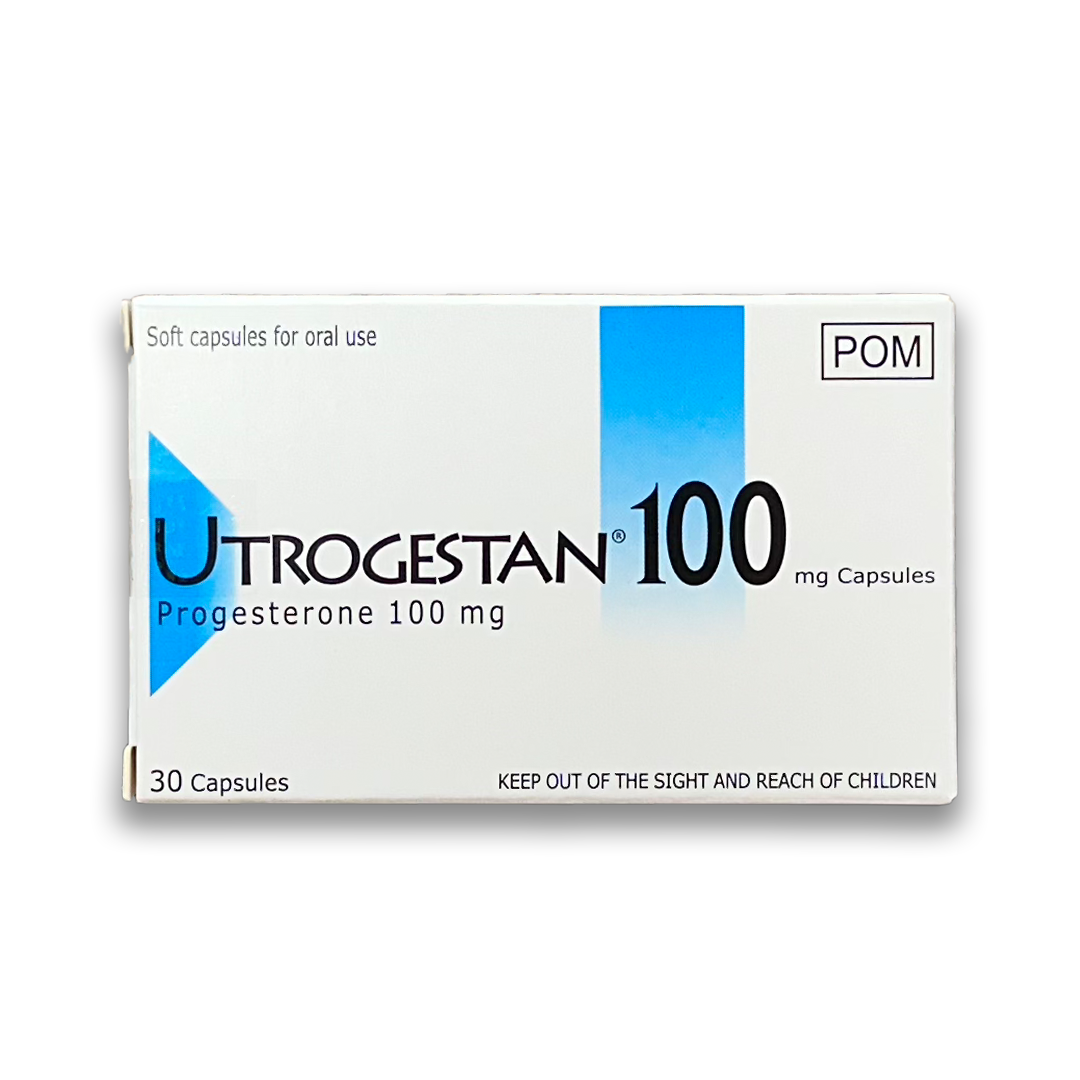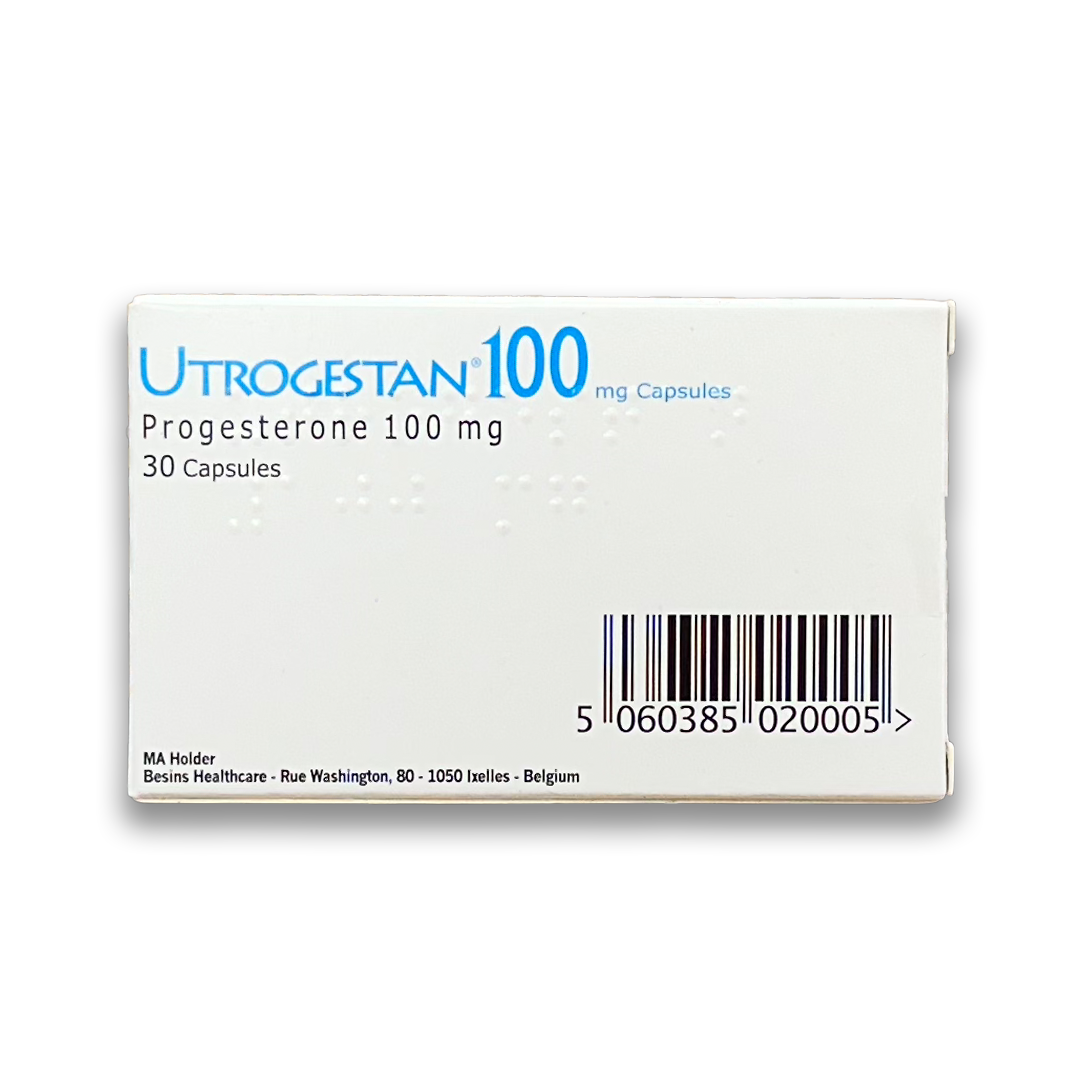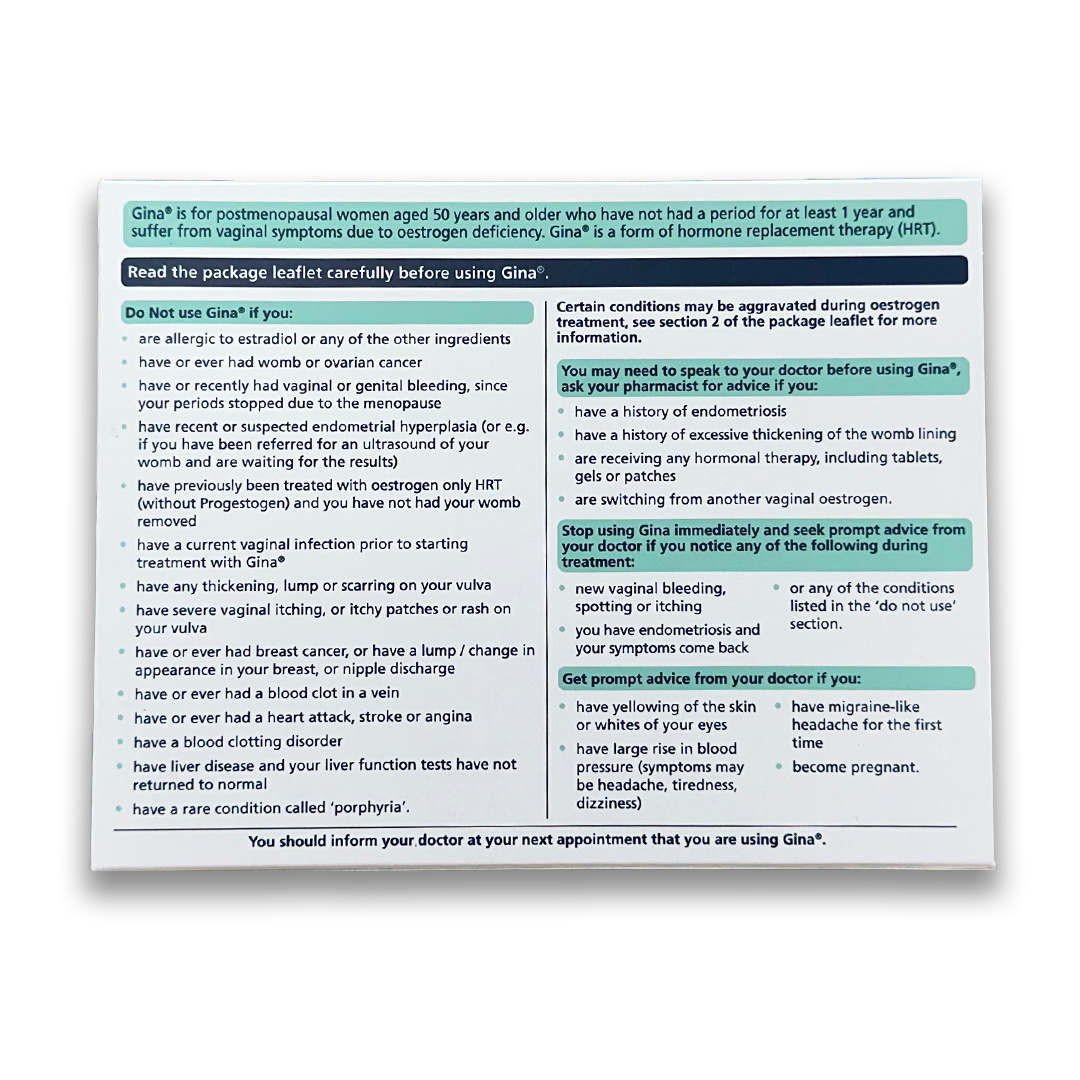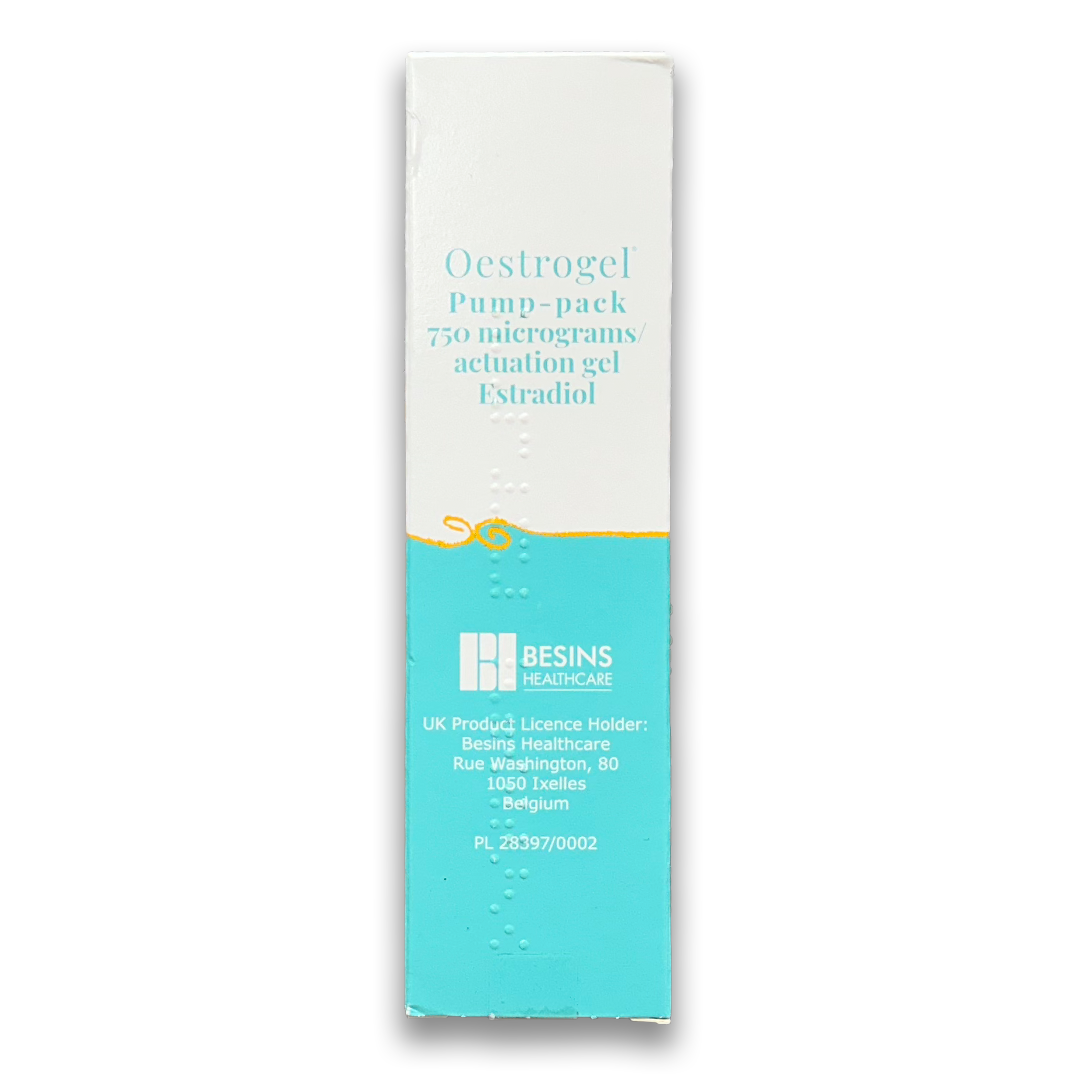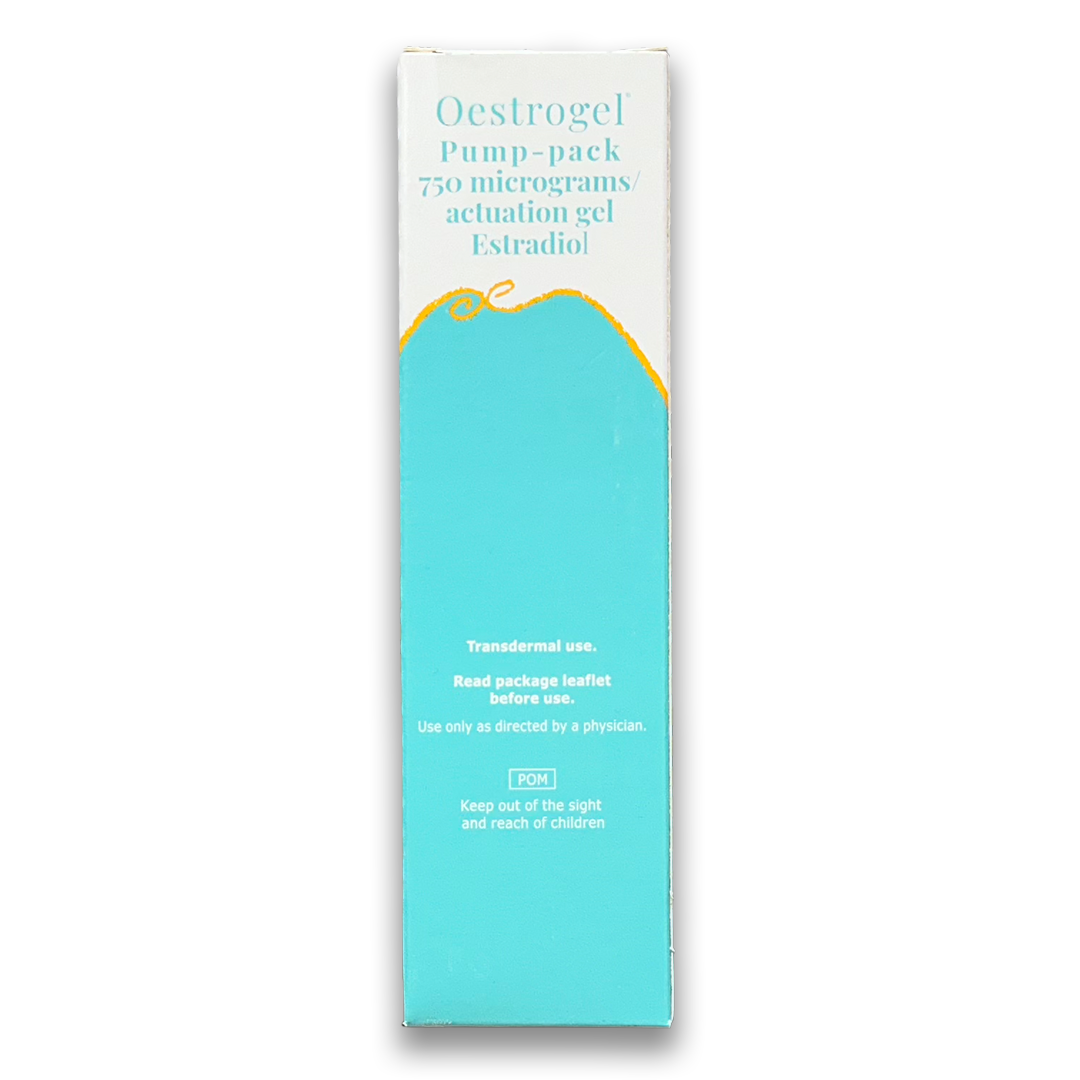Gina 10 microgram vaginal tablets

What is Hormone replacement therapy ?
Hormone replacement therapy (HRT) products are designed to support women through the physical and emotional changes that accompany menopause by replacing the hormones that naturally decline during this stage of life. These products can help relieve common symptoms such as hot flashes, night sweats, mood swings, fatigue, and decreased bone density, promoting overall well-being and comfort.
With appropriate treatment, women can find relief from the challenges of menopause and regain a sense of balance and vitality. Always consult a healthcare provider to determine the best hormone replacement therapy option for your needs and follow the guidelines provided for safe and effective use.
About Hormone replacement therapy
Reasons
Diagnosis
Treatments
Management
Additional information
Frequently Asked Questions
Is hormone replacement therapy safe for everyone?
What are the potential risks of hormone replacement therapy?
Does hormone replacement therapy affect weight or mood?
Can I stop taking hormone replacement therapy suddenly if it isn't working for me?


